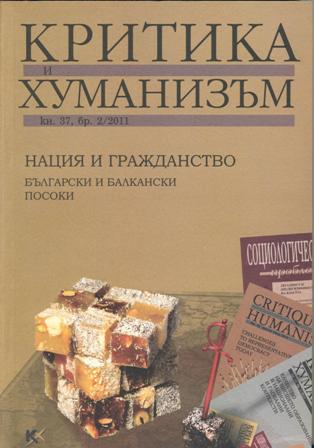Микроикономика на антисемитизма. Българската държава „аризира“ „еврейските“ акционерни дружества, 1941-1944 г.
The Microeconomics of Anti-Semitism. The Bulgarian State “Ariazes” the “Jewish” Shareholders Companies, 1941-1944
Author(s): Roumen AvramovSubject(s): History
Published by: Фондация за хуманитарни и социални изследвания - София
Keywords: anti-Semitism; microeconomics; etatism; capital; nationalization
Summary/Abstract: Based on the archives of the Commissariat for Jewish Affairs, the paper examines three cases of the mandatory “ariazation” of the “Jewish” shares in domestic companies required by the Anti-Semitic laws enacted in 1941. The focus is on the specifi c segment of 56 enterprises which have been ultimately acquired by the State and which constituted well above 50% of the capital hold by Jewish shareholders. The cases under scrutiny reveal how intense was the interest of local capitalists to acquire the “Jewish” property subjected to compulsory sale. Many industrialists seized the opportunity to try to obtain at attractive price the assets offered. They demonstrated no scruple concerning the origin of the offer, while many of them showed overt allegiance to the Anti-Semitic policies. In the rush, however, the State had a privileged position. As the cases prove, the government had no diffi culties to impose its will and to nationalize the fi rms it targeted. Thus, the racist legislation enhanced signifi cantly the already powerful statist trend in the Bulgarian inter-war society. With the “ariazation” of the economy, the State handled and distributed discretionally an important volume of ownership. Although seemingly paradoxical at fi rst glance, a parallel is made with the problems and the technicalities that emerged during the recent privatization in Bulgaria which constituted an even more important exercise of property redistribution.
Journal: Критика и хуманизъм
- Issue Year: 2011
- Issue No: 37
- Page Range: 265-282
- Page Count: 18
- Language: Bulgarian
- Content File-PDF

